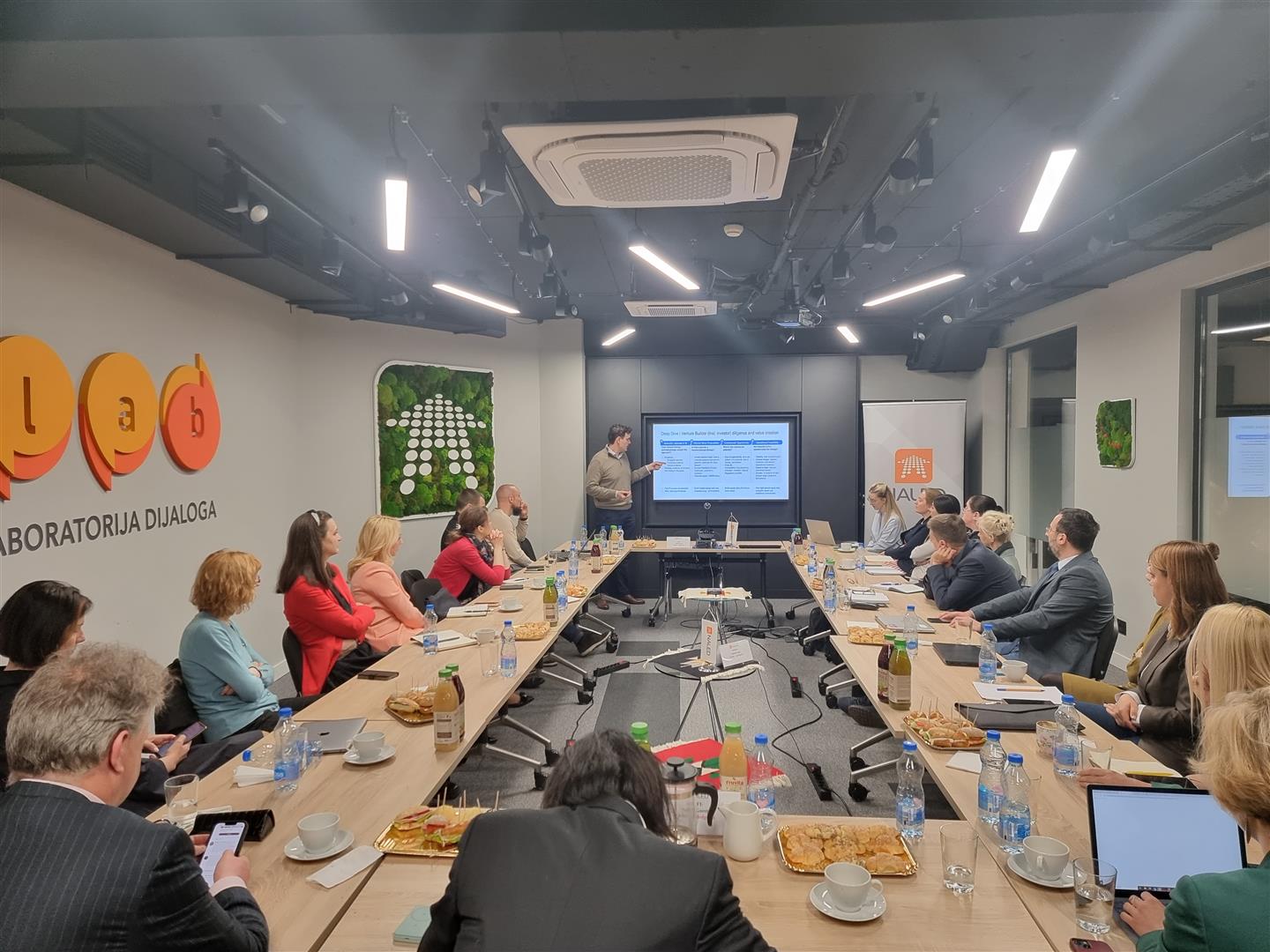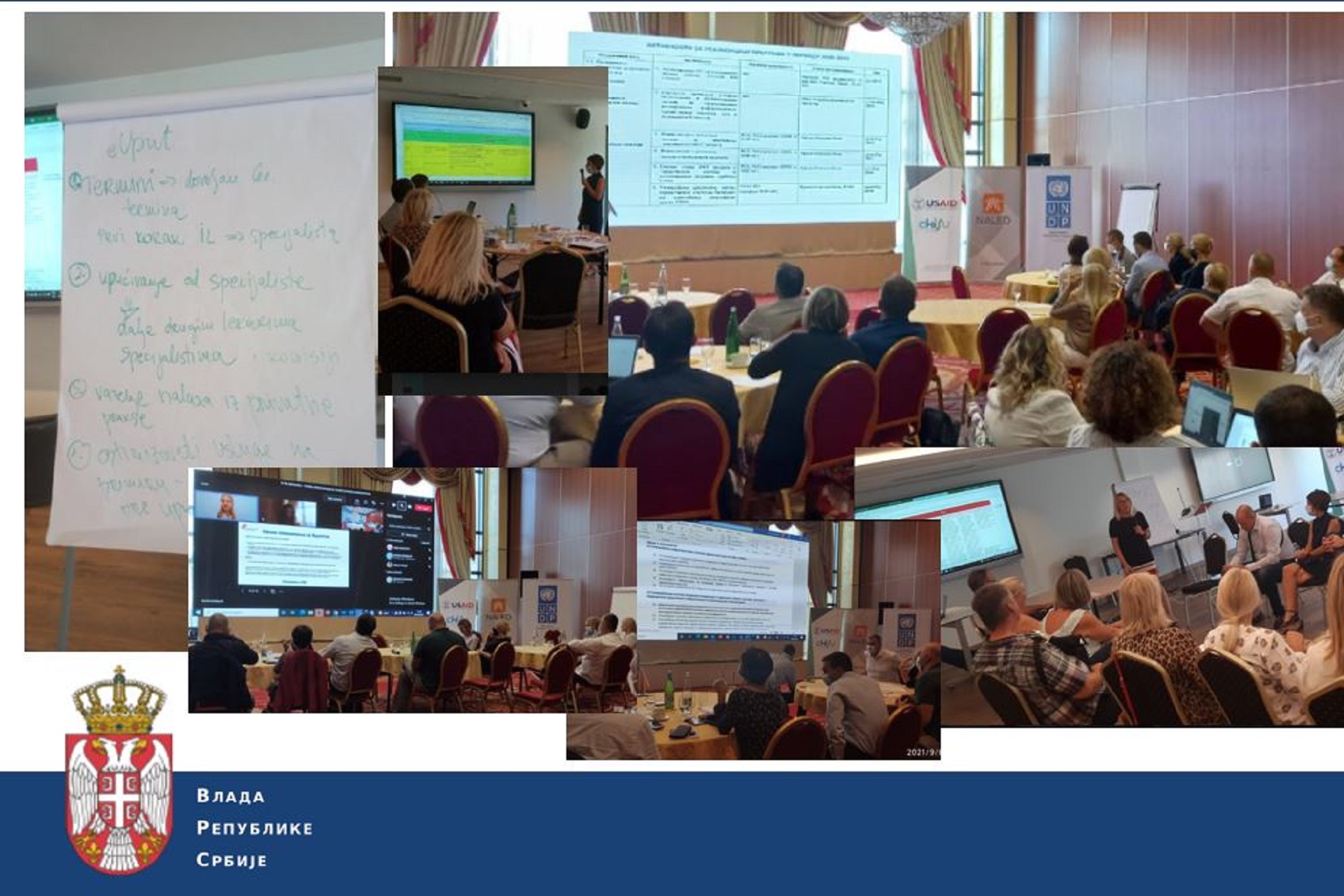British experts: Serbia should digitalize healthcare data promptly
Digitized health data is necessary for clinical research, discovery of new drugs and treatment of rare and serious diseases. The corona virus pandemic was a wake-up call for the whole world to cooperate and exchange information, and if Serbia does not participate in that, patients in Serbia will not benefit much.
This is the recommendation of British experts, who are visiting our country as part of the "UK Excellence Biotech Hub" project, which is implemented by NALED with the support of the British Embassy in Belgrade and the Government of the United Kingdom. Today, a team of experts met with the Minister of Science, Technological Development and Innovation Jelena Begović, experts from the Center for the Fourth Industrial Revolution, visited the Institute for Molecular Genetics and Genetic Engineering, the location where the BIO4 campus will be built, and in the premises of NALED talked with domestic experts about development of the biotechnological ecosystem in Serbia.
Great Britain has one of the best ecosystems for the development of biotechnology and numerous experiences that can be taken over by Serbia. According to the experts, the three key steps for success are a good regulatory framework and political will, providing the infrastructure needed by scientists for research, as well as encouraging the development of companies that will commercialize the discoveries of the scientific community.
- Britain included the development of life sciences in the Industrial Strategy in 2010, and since then the great development of the biotech ecosystem has been underway. All relevant institutions, the National Health Service, regulatory bodies, universities and the economy are connected. A project to sequence 100,000 genomes was also launched, with a special focus on the discovery of drugs for rare diseases and certain types of cancer. The important foundations of the formation of the ecosystem were transparency and respect for ethical standards, and everything was accompanied by the support of politicians, who also knew from personal experience why biotechnology is important. Prime Minister David Cameron lost a child who was suffering from a rare disease - said adviser for genomics and bioethics Mark Bale.
The Deputy Director General of the European Molecular Biology Laboratory (EMBL) Evan Berni highlighted this institution as a good example in the development of infrastructure for scientists and students. Researchers from the 28 countries that founded EMBL can work on the most modern and powerful X-rays or microscopes, use data from all available studies, research and connect with companies in order to commercialize products. EMBL data is accessed by millions of scientists, and they send an average of 107 million queries every day. Bernie explained that the development of a drug for rare diseases takes more than 10 years and costs millions of euros, so the connection between science and the economy and the exchange of information is something that can significantly shorten the path to a cure.
Scientist Nikola Novčić, who works for the company Quell Therapeutics, and Alesder Tong, founder of the Selvidge Capital Fund, explained that the approach to financing the development of biotechnology companies can go from four directions - that the state provides money through its programs, by investing individuals (angel investors), by developing startups within the accelerator or by attracting investment from large institutional investors. Investing in the development of a biotech company takes a little longer than others and can take 2-3 years, and they are necessary for the development of new drugs, bearing in mind the predictions that by 2050 the population will grow to 9.7 billion people, by 2030 the number cancer deaths will increase by as much as 45% while cardiovascular diseases will continue to be the dominant cause of mortality (currently responsible for 31% of premature deaths).
British experts are on a return visit after the Serbian delegation led by Minister Begović visited Britain in January. The visit was organized by NALED and the Center for the Fourth Industrial Revolution.









